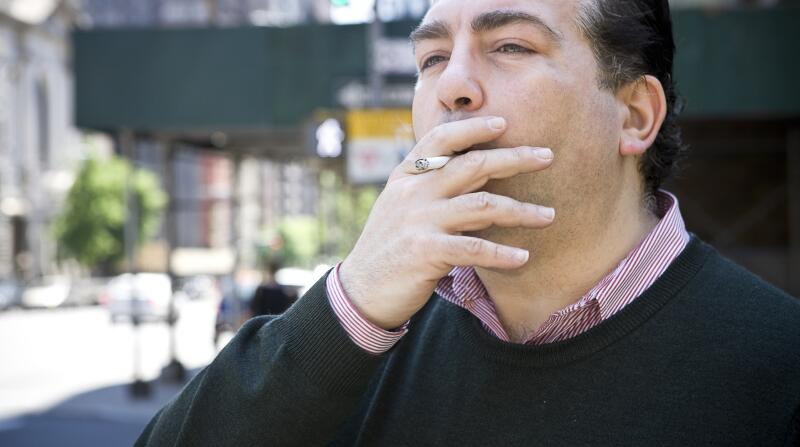10 Mistakes People With HIV Make

Medically Reviewed By William C. Lloyd III, MD, FACS
-
 Sidestep ComplicationsYou can live a long, productive life with HIV. But it’s important to learn all you can about the condition and how to care for yourself. By avoiding the following mistakes, you can sidestep complications and improve your quality of life.
Sidestep ComplicationsYou can live a long, productive life with HIV. But it’s important to learn all you can about the condition and how to care for yourself. By avoiding the following mistakes, you can sidestep complications and improve your quality of life. -
 Mistake #1: You don’t seek treatment because of financial reasons.HIV treatment can be expensive, but it’s no longer necessary to forego treatment based on cost. New laws ensure that health insurance is available for most people with HIV. Plus, many federal aid programs and drug manufacturers offer assistance to those unable to pay. Find help at AIDS.gov.
Mistake #1: You don’t seek treatment because of financial reasons.HIV treatment can be expensive, but it’s no longer necessary to forego treatment based on cost. New laws ensure that health insurance is available for most people with HIV. Plus, many federal aid programs and drug manufacturers offer assistance to those unable to pay. Find help at AIDS.gov. -
-
 Mistake #2: You’re less than diligent with your medication.Skipping even one dose of HIV medication can cause the virus to replicate into different strains, which may be resistant to your drug. Don’t give the virus the opportunity. Keep it under control by taking your medicine at the same time each day. Try setting an alarm as a reminder.
Mistake #2: You’re less than diligent with your medication.Skipping even one dose of HIV medication can cause the virus to replicate into different strains, which may be resistant to your drug. Don’t give the virus the opportunity. Keep it under control by taking your medicine at the same time each day. Try setting an alarm as a reminder. -
 Mistake #3: You keep secrets from your doctor.Be open and honest with your doctor about everything. Changes in your personal life, side effects of your medication, and problems following your treatment plan can all affect your condition. The more your health team knows, the better they can help you.
Mistake #3: You keep secrets from your doctor.Be open and honest with your doctor about everything. Changes in your personal life, side effects of your medication, and problems following your treatment plan can all affect your condition. The more your health team knows, the better they can help you. -
 Mistake #5: You keep mum about herbs or supplements.Some common herbs and supplements that are marketed to help HIV patients have been proven ineffective. What’s more, some may actually interfere with HIV medications. Talk with your doctor before trying these remedies.
Mistake #5: You keep mum about herbs or supplements.Some common herbs and supplements that are marketed to help HIV patients have been proven ineffective. What’s more, some may actually interfere with HIV medications. Talk with your doctor before trying these remedies. -
-
 Mistake #6: You don’t see your gynecologist regularly.If you’re a woman with HIV, you are at greater risk for cervical cancer. That’s because your immune system has a harder time fighting off abnormal cell growth in the cervix. If left untreated, these cells can turn into cancer. Thankfully, regular Pap tests can catch the problem early.
Mistake #6: You don’t see your gynecologist regularly.If you’re a woman with HIV, you are at greater risk for cervical cancer. That’s because your immune system has a harder time fighting off abnormal cell growth in the cervix. If left untreated, these cells can turn into cancer. Thankfully, regular Pap tests can catch the problem early. -
 Mistake #7: You haven’t kicked the tobacco habit.Smoking decreases the effectiveness of HIV medications. It also weakens the immune system and makes it more difficult to fight off infection. HIV treatments can now lengthen your lifespan; don’t shorten it by smoking.
Mistake #7: You haven’t kicked the tobacco habit.Smoking decreases the effectiveness of HIV medications. It also weakens the immune system and makes it more difficult to fight off infection. HIV treatments can now lengthen your lifespan; don’t shorten it by smoking. -
 Mistake #8: You think oral sex is safe.Although the risk of passing HIV to a partner through oral sex is lower than it is through vaginal or anal sex, it is possible. Practice safe oral sex by using a condom or other barrier between the mouth and genitals to reduce transmission of the virus.
Mistake #8: You think oral sex is safe.Although the risk of passing HIV to a partner through oral sex is lower than it is through vaginal or anal sex, it is possible. Practice safe oral sex by using a condom or other barrier between the mouth and genitals to reduce transmission of the virus. -
 Mistake #9: You don’t take flu season seriously.People with HIV are at increased risk for serious complications related to influenza. To protect yourself, ask your doctor about getting a yearly flu vaccine. Opt for the shot instead of the nasal spray, which contains a weakened form of the live influenza virus.
Mistake #9: You don’t take flu season seriously.People with HIV are at increased risk for serious complications related to influenza. To protect yourself, ask your doctor about getting a yearly flu vaccine. Opt for the shot instead of the nasal spray, which contains a weakened form of the live influenza virus. -
 Mistake #10: You ignore your mental health.HIV affects people’s mental health in many ways. Not only can the diagnosis lead to depression and anxiety, the virus itself can infect the brain or raise the risk of opportunistic infections. These can cause memory and thinking problems. Plus, some HIV medications cause mental side effects. Talk with your doctor if you suspect problems.
Mistake #10: You ignore your mental health.HIV affects people’s mental health in many ways. Not only can the diagnosis lead to depression and anxiety, the virus itself can infect the brain or raise the risk of opportunistic infections. These can cause memory and thinking problems. Plus, some HIV medications cause mental side effects. Talk with your doctor if you suspect problems.
HIV | 10 Mistakes People Make Managing HIV






















